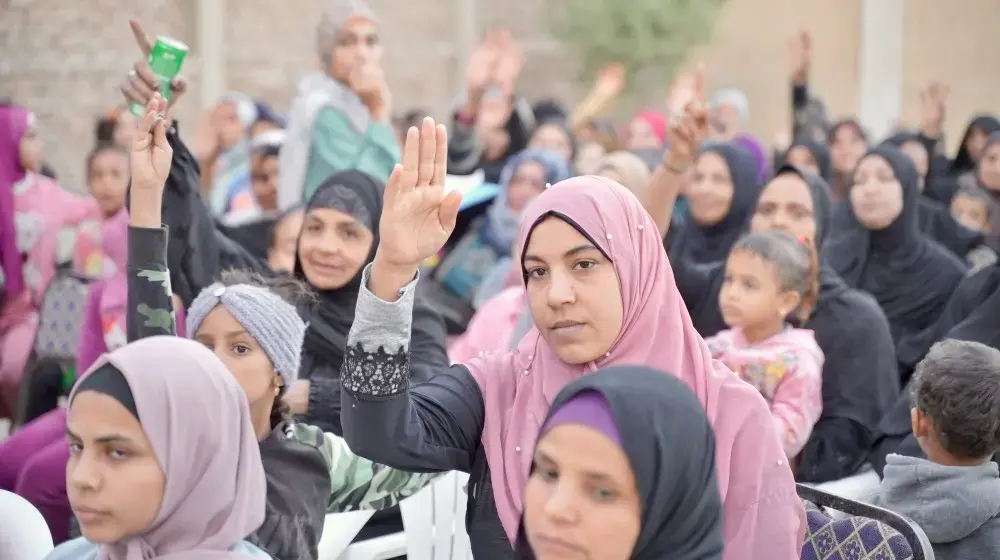NEW YORK - Staff from Headquarters, regional, subregional and country offices met for two days in January to lay the groundwork for the new UNFPA cluster approach to the way we work and deliver.
“We have to turn the organization around and put the needs of countries and country offices needs at the centre of all we do. The cluster mechanism is an innovative and very much needed way of thinking, of breaking down silos, optimizing resources and delivering results”.
With these words the Executive Director opened the internal UNFPA meeting “Operationalizing the Cluster Approach to Deliver the UNFPA Strategic Plan”, which brought together 33 colleagues from HQ divisions, regional and subregional offices and selected country offices on 16 and 17 January in New York.
The creation of two clusters – one focusing on Adolescents and Youth and the other on Women’s Reproductive Health – was called for in the new Business Plan, which aims to improve institutional delivery on the 2012-2013 UNFPA Strategic Plan, The goal of the cluster approach is to change the way we work in order to maximize results through coherent planning and implementation of capacity building activities and technical support from headquarters and regional offices.
“This is not about what the Technical Division can provide to countries, but about what the organization as a whole has to deliver to the countries, so we can achieve our goals, position ourselves as a leader on the issues and improve the lives of the people we are here to serve,” the ED emphasized.
The purpose of the intensive two-day meeting was to reach consensus on the operationalization of the clusters, working methods, next steps and timeline.
“To me this is a clear proof that senior management is committed and serious about changing things and doing it fast. If operationalized, this is the way to move key Business Plan issues and build common understanding, which is fundamental if we want to speak with one voice and achieve the goals of the Strategic Plan,” saidBenoit Kalasa, Representative in Ethiopia.
Adding value
To the question, what is the value added of this cluster approach? Jagdish Upadhyay, Chief of TD’s Commodity Security Branch and leader of the Women’s Reproductive Health cluster, replied: “It will be a more efficient and effective way of working that will minimize transactions costs and break down superficial walls. It will take UNFPA to its core business around MDG 5, reproductive health and youth, and it will have country office needs and support at its heart”.
Reflecting on how staff are expected to respond to this new approach, Laura Laski, Chief of the Sexual and Reproductive Health Branch in TD and leader of the Adolescent and Youth cluster, said: “We have to keep doing what we are already doing well. Our mandate and the new vision are clear. But we have to do it in a different and much more collaborative way – in HQ, in regional offices, in the country offices, and between the different entities. This applies to all institutional entities and to all individuals”.
Concrete outputs
This new way of working is expected to have three concrete outputs:
· Much stronger and focused technical support to countries
· Much better quality of UNFPA and joint programmes, which have to be delivered in an integrated fashion
· Stronger knowledge sharing and communication, including identification and use of good practices; an integrated approach to monitoring and evaluation; and evidence-informed/results-oriented planning, communication, resource mobilization and political advocacy.
In addition, the work of the clusters will inform and support the development of a new strategic plan in 2013.
While there are still some issues that need to be fleshed out regarding how the clusters will work and which countries will be selected to pilot the cluster approach (tentatively planned to be three in each region), there was a general agreement that it had been an efficient meeting – and a good beginning to a new way of delivering results.
"I leave very hopeful and feel very privileged to have been part of laying the groundwork for this most essential, new approach," said Julitta Onabanjo, Representative in Tanzania. "We cannot deliver results unless we work in a more interdisciplinary way, gathering the competencies and capacity from all over organization. For the first time, we are having the institution pull together. This was evident in the meeting,”
“This is about culture, specifically about changing the institutional culture,” addedJaime Nadal Roig, Representative in Bolivia. “We have become used to working in technical and geographical silos. The cluster approach is pushing us out of our comfort zones, which is needed. This is change management in action – and I like it.”



